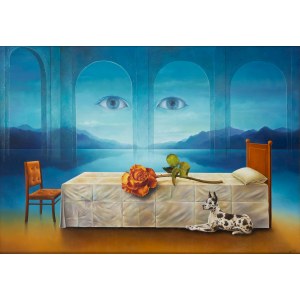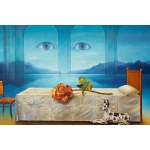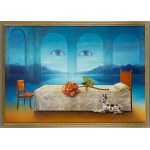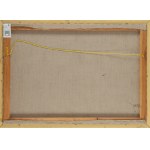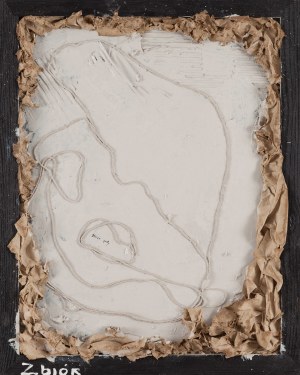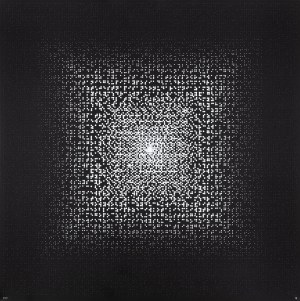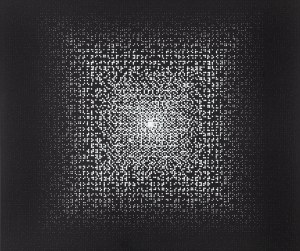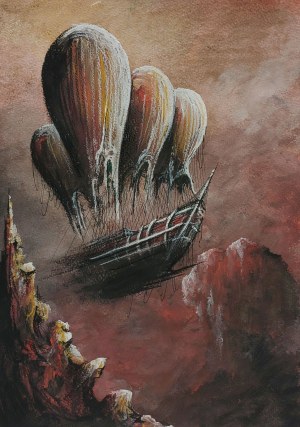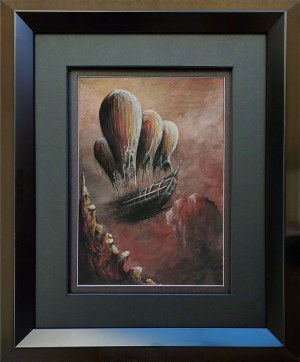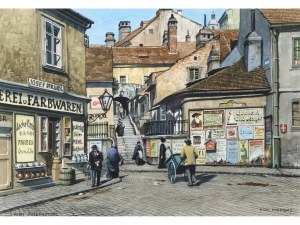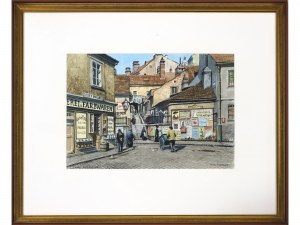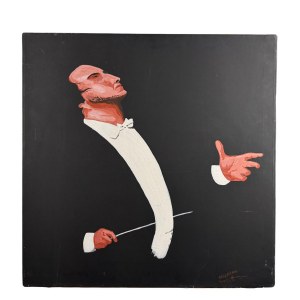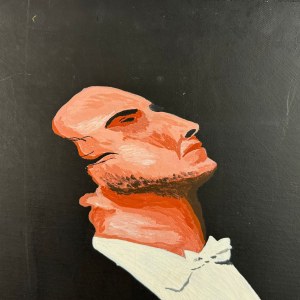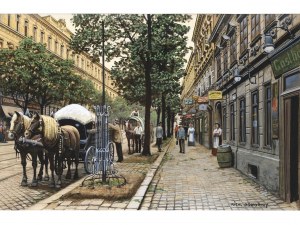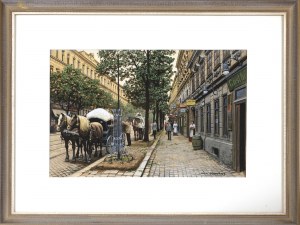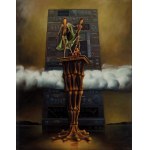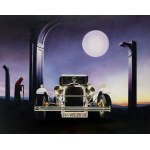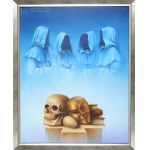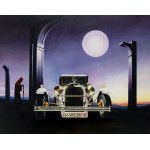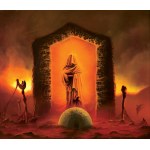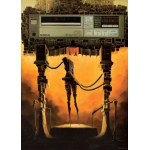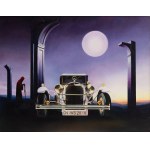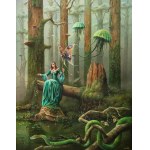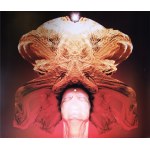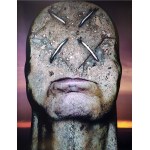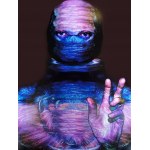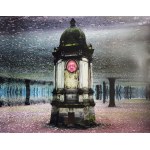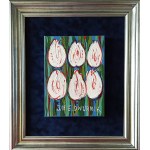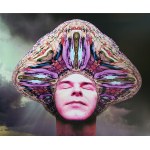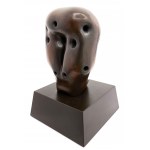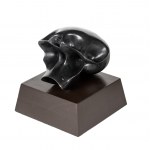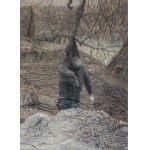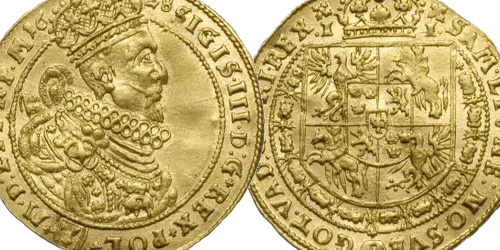Dimensions: 73.5 x 105 cm
Signed and dated p.d.: 'Rosiński | 03'
Literature
Nostalgia, sadness, melancholy, longing for the lost, contemplation of the passing of time, gratitude and coming to terms with lack - all these emotions (and many more) are hidden in one Portuguese word: saudade. The word is derived from the Latin solitas meaning loneliness, saudade, however, should not be viewed solely negatively. The term contains a whole palette of both positive and negative emotions. On the one hand, there is melancholy, a sense of lack and nostalgia for what is irretrievably lost, but on the other hand, we also find a reconciliation with the passing of time and a deep gratitude that it was possible to experience this beautiful moment in the past. On the one hand, a sense of emptiness is felt, and on the other hand, an awareness that it is impossible to fill it, because the object of this longing remains distant and unreal.
There is no single word in our language that captures the complexity of the meaning of saudade. The semantically closest term here would probably be "yearning." At the same time, it is worth mentioning that saudade is not a temporary state of mind; rather, it is a deeply rooted personality trait, a kind of sadness-lined reverie. As the Portuguese emphasize, its constant presence is an essential part of their national identity. It is this feeling that dominates the songs fado sings. In this genre lies the whole essence of saudade - flowing from the very depths of the soul an unquenchable longing for something that cannot be described, for something that was, is gone and will not return.
Although saudade is one of the untranslatable words and occurs only in Portuguese, the phenomenon of nostalgic melancholy itself is known all over the world, and it goes by various names in different cultures. In Galicia - a Spanish province with strong cultural ties to northern Portugal - it is referred to as morriña, while in Brazil it is called banzo. Very close to the Portuguese saudade is the Finnish kaiho - pain of the soul caused by longing for the indefinable - and the Romanian word dor - desire for something distant and a bit unreal. In a way, the complexity of saudade can be compared to the phenomenon that is Weltschmerz. Although in the German counterpart, the pain of existence, a sense of hopelessness and utter resignation such as in "The Suffering of Young Werther" comes to the fore, whose main character decides to end his suffering once and for all... While in Portugal, it is rather dominated by the sentimental reverie accompanying longing and a kind of joy at the thought of the glorious past. Examples of melancholy can also be found in slightly more distant cultures from Europe - in the Arab world there is a word wajd, which means a state of acute sadness caused by the memory of a loved one who is absent. In it, however, the feeling of irreparable loss is mixed with gratitude that the person had a chance to appear in someone's life. In Japan, on the other hand, the term natsukashii is used, colloquially understood as a warm remembrance of the "good old days," shrouded in a hint of slight nostalgia and regret for what has passed. Its Korean equivalent is keurium. Interestingly, saudade also occurs in Esperanto. The term functions as saŭdado and was transferred directly into that language precisely because it is untranslatable. To render it in Polish, on the other hand, we must settle for a far more elaborate description. We instinctively understand its meaning perfectly, although it must be admitted that the common understanding of nostalgia has changed a lot. Once nostalgia was considered a disease faced by immigrants. Its essence was an acute longing for the homeland and the people who stayed in it, as well as past times.
A Swiss physician, Johannes Hofer, coined the term in 1688. The word itself is derived from the Greek words "nostos" (meaning longing to return home) and "algos" (the pain associated with that longing). For a long time, nostalgia was associated with longing for the homeland, the family home and the safe place of childhood. It wasn't until the 19th century that nostalgia began to be viewed differently. For example, Swiss psychiatrist Carl Jung viewed it as a way to reconnect with the past and understand the present. For him, nostalgia was a way to access the "collective unconscious" - the shared history and experiences we all have as human beings.
The painting "Nostalgia" presented at the auction is quite enigmatic in its message. It consists of many elements. A pair of blue eyes, a spectacular view, and a bed that looks a bit like a table or a catafalque with a gigantic rose. A dog watches at the side of the bed. With a great deal of uncertainty, one can deduce that the "Nostalgia" of the title refers to the feeling a man is gripped by after the death of his beloved.



